
Spoiler Warning: There are spoilers ahead for Star Trek: Picard Seasons 1-2 and the trailers and teasers for Season 3.
This essay touches on the subjects of mental health and suicide and may be uncomfortable for some readers.
It’s taken me a long time to get around to dissecting Season 2 of Star Trek: Picard. This was something I’d initially planned to do last year, shortly after the season wrapped up, but the truth is that every time I started writing, going back to re-watch what was a thoroughly disappointing season of Star Trek just felt incredibly unappealing. It’s only now, with the imminent debut of Season 3 spurring me on, that I’ve finally been able to put metaphorical pen to paper.
There are many words we could use to describe Picard Season 2, but if you stuck with my episode reviews last year as the season rolled on, you might remember me using this one: “catfished.” By midway through the season, I genuinely felt catfished by Picard, because an absolutely wonderful premiere episode had quickly given way to a confused, poorly-paced, convoluted story.

This might be controversial, but my suspicion is that Picard Season 2 suffered at least in part due to the involvement of Sir Patrick Stewart in the creative process. Not unlike what happened with William Shatner and The Final Frontier, some of Stewart’s ideas simply didn’t work well on screen, or ended up contradicted or overwritten by other story beats as the season unfolded. Perhaps the most obvious example of this would be Jean-Luc Picard’s trauma and how that storyline was in focus for such a long time, but we could also point to Chris Rios’ character arc – in which he had to simultaneously hate the 21st Century and fall in love with it.
Sir Patrick Stewart is a fantastic actor, don’t get me wrong, and he’s inhabited the role of Jean-Luc Picard on and off for more than thirty-five years, becoming almost inseparable from his most famous role. But not every actor is a great writer or creator, even those who truly put their all into their roles and feel that they know their characters inside and out. We were told from the moment of Star Trek: Picard’s announcement that Sir Patrick Stewart was working closely with the writers and contributing his ideas… but after two muddled, meandering seasons of television, that may not have been to the series’ advantage.

Despite a pandemic-enforced delay giving Paramount and the creative team behind Star Trek: Picard plenty of time to process the reaction to Season 1, it’s disappointing to see that some of the same issues reoccured. My biggest criticism of Season 1 was that the story ran out of time and ran out of road; the season plodded along at too slow a pace and left the finale with too much work to do. Although there are other criticisms this time around, the same problem of a glacial pace in early episodes leading to a rushed, overburdened finale was present once again.
It remains to be seen whether Season 3 – which, lest we forget, was filmed back-to-back with Season 2 – will pick up any of these wayward story threads… but my suspicion is that, sadly, it will not. If Season 3 does continue some of these storylines, the mysterious anomaly most notably, then perhaps we can look on this side of things a little more kindly in retrospect. But that will have to be a conversation for another day.
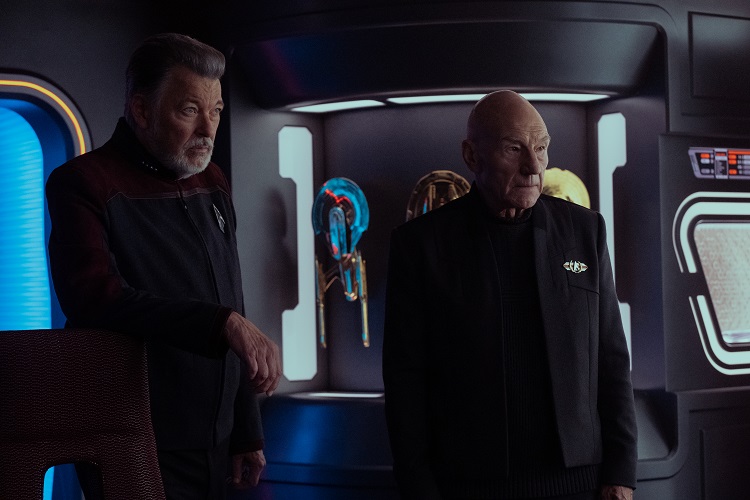
The reason why I fear Season 3 will simply ignore things like the new Borg faction and the mysterious anomaly is, of course, because Season 2 ignored all of the storylines that had been left on the table as Season 1 stumbled across the finish line. Especially given the deliberately slow pace of most of the episodes, you’d think it would have been possible to at least acknowledge, even if in the most barebones of ways, what happened to Narek, the ex-Borg, the settlement on Coppelius, and what Starfleet may have planned to do about the Zhat Vash and Aia.
Even just picking one or two of these points and throwing in a line of exposition-heavy dialogue would have been something, and while I can understand some fans who may not have enjoyed the first season’s story saying it’s better to just move on, for me, I’d have liked to have seen some kind of attempt to bring closure to some of the biggest points that Season 1 ran out of time for.
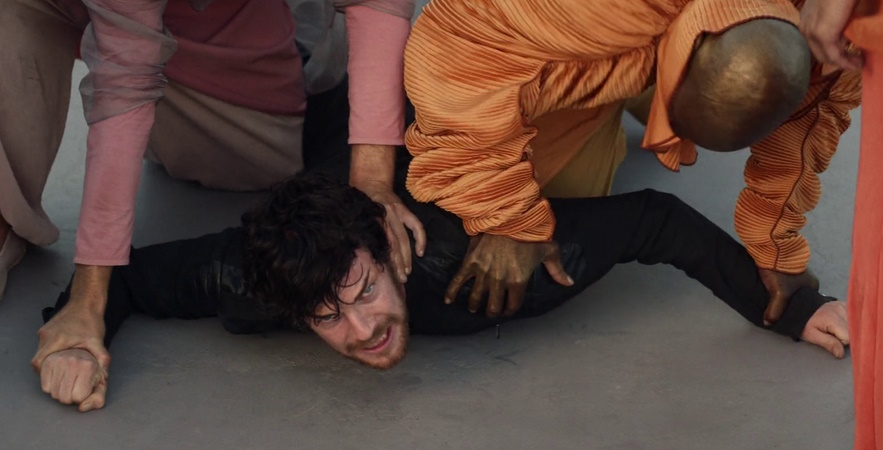
In terms of main stories, side stories, main characters, secondary characters, complicated themes, and even the settings used for the majority of its episodes, Picard Season 2 came up short and failed to deliver. There were lofty ambitions here, and the most disappointing thing isn’t that all of these ideas were bad – though some were, I’m sorry to say – but that the season couldn’t find a way to make them work.
Season 2 manages to feel simultaneously overburdened with too many ideas and half-finished stories and also as if its main narrative was an overstretched two-parter; a story that could have worked a lot better in a shorter format without so much extraneous fluff and padding. And that kind of sums up other parts of the season, too: it’s an incredibly contradictory affair, feeling as if two very different teams of writers were actively working against one another, overwriting or undermining story beats from one episode to the next.
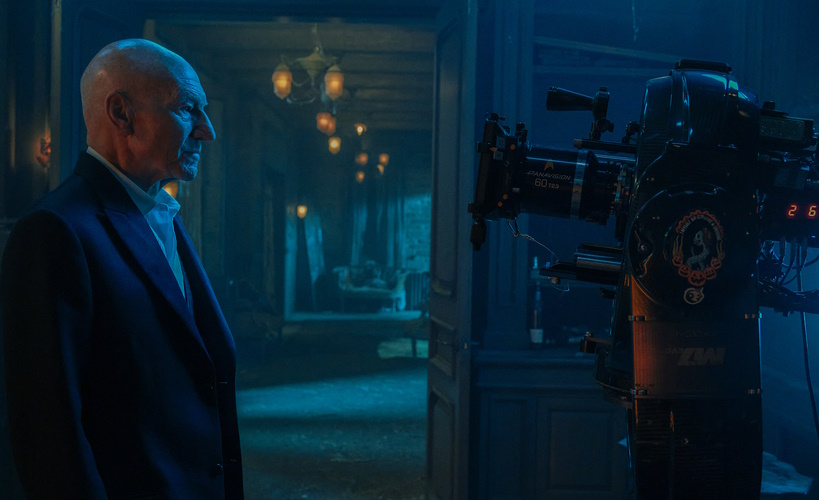
A big part of the story of Season 2 – at its core in more ways than one – were themes of mental health involving multiple characters. Mental health can be difficult to depict in fiction, and unfortunately in Star Trek: Picard we have yet another example of how things can go wrong.
Yvette Picard’s condition was left unnamed, and the way her suicide came across on screen felt that it was being played more for shock value than anything else. Exploring mental health is absolutely worth doing in works of fiction, and dissecting how characters both respond to and live with trauma is likewise a noble idea – in Picard’s case, he was living with trauma that extended all the way back to his childhood. But the inclusion of these elements has to be handled sensitively, and just as importantly, it should serve some kind of narrative purpose. Star Trek: Picard may just scrape a passing grade on that latter point – though even then it comes with the caveat that this was an incredibly convoluted and muddled story – but on the former, the way in which this mental health story unfolded on screen was shockingly poor.

I’ve said this before both as a criticism of the Star Trek franchise and of other properties, but here we go again: if there isn’t enough time to properly explain and sensitively depict a mental health condition in a work of fiction, I’d honestly rather it was skipped altogether. A stereotyped, trope-laden, over-acted presentation of an unnamed “mental illness” added nothing to a story that had its focus and attention elsewhere. While there seemed to be the kernel of a good idea in Yvette’s story, the way it came to screen leaned into decades-old stereotypes. It did nothing whatsoever for the cause of mental health, and these shoddy depictions in the Star Trek franchise have to stop. I’ve commented on this in Picard’s first season and in Discovery, too, and while I respect the creators and writers for wanting to include these themes, if there isn’t time to do justice to them, it’s better, in my view at least, to cut them out and do something else.
While Yvette’s story served a narrative function, it stands alongside the presentation of Su’Kal in Discovery’s third season and the really awful stereotypical presentation of ex-Borg in Picard Season 1 as being an unacceptable throwback; something I might have expected to see on television forty or fifty years ago. Better understanding of mental health has led to some truly wonderful and inspired representations across all forms of media in recent years, and it’s disappointing to see the Star Trek franchise continually failing to get this right.
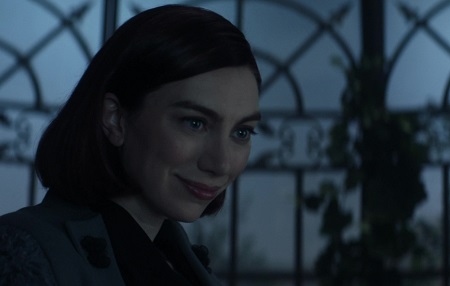
Speaking as someone with diagnosed mental and physical health conditions, one of the things I’ve always found most appealing about Star Trek’s optimistic take on the future is the notion that, one day, many of the illnesses and conditions facing people in the 20th and 21st Centuries can be cured or overcome. The Star Trek franchise has depicted people suffering from mental health issues in a variety of ways going all the way back to The Original Series, but even in episodes with problematic elements, like Whom Gods Destroy, this theme of hope for a cure was present.
In Picard Season 2, the way Yvette’s illness was handled felt incredibly “20th Century.” While again that served a narrative function, it was hardly something that we’d want or expect to see in the Star Trek franchise, and the idea of locking away someone who was clearly suffering from a very complex condition is already an outdated one today – let alone three centuries from now. To then see Jean-Luc Picard not only come to accept the way his father behaved, but to forgive him for it and even respect it, perhaps feeling he’d have acted the same way, was deeply disappointing and felt incredibly out-of-character.
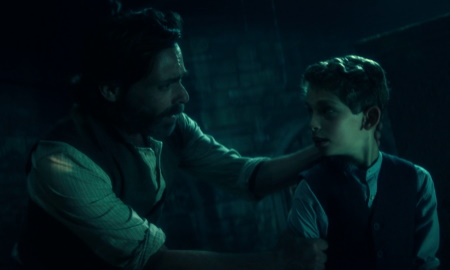
There were also issues with the way Renée’s story worked from a mental health point of view. Picard’s ancestor was struggling with anxiety and, I guess, a kind of “imposter syndrome,” not feeling up to the task of taking a leading role on the Europa Mission. But at key points in the story, it felt as if, once again, this mental health angle was little more than tokenistic. The season brought this up when it served the narrative, only to drop it moments later when the focus of the story switched. We didn’t get anything close to a realistic portrayal of anxiety as a result.
The most obvious example of this came in the episode Two of One, where Renée had been given a pep talk by Picard. Almost being hit by a car – and seeing someone who had just spoken so kindly and reassuringly to her moments earlier being badly injured saving her – is something that you’d think would have had some kind of effect on Renée… but the story just dumped her as it raced to do a weird coma-dream sequence populated by amateur-looking B-movie monsters in the next episode.
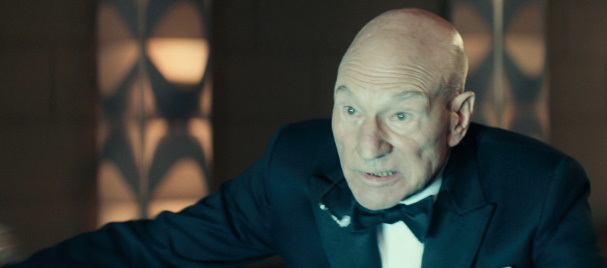
Renée, despite her importance to the plot, feels insignificant and one-dimensional; less a real person than a plot device that the story could use when it was necessary and ignore the rest of the time. Despite the Federation’s very existence supposedly hinging on her presence aboard the Europa Mission, and Q’s entire scheme being based on stopping her, we spent remarkably little time with Renée. After being introduced, she was absent for several episodes before showing up again – briefly – in the season finale.
A character who’s so important to the plot shouldn’t be treated this way. And unfortunately, it feels as if Picard Season 2 almost took advantage of anxiety and anxiety disorders, using this very real and debilitating illness as a mere plot device. Renée’s story certainly had very little to say about mental health that was in any way positive.

The truth is that I’d almost forgotten about Renée. She’s far from the worst thing about the season, but the fact that such an important character, and someone on whose actions the entire plot turned ended up being so thoroughly forgettable should certainly stand as a comment on the way this character was both conceived and brought to screen.
Star Trek needs to aim higher when it comes to mental health stories, and I think that’s one of the biggest takeaways for me personally from Picard Season 2. Both Yvette and Renée ended up feeling tokenistic and outdated in the way they came across on screen.
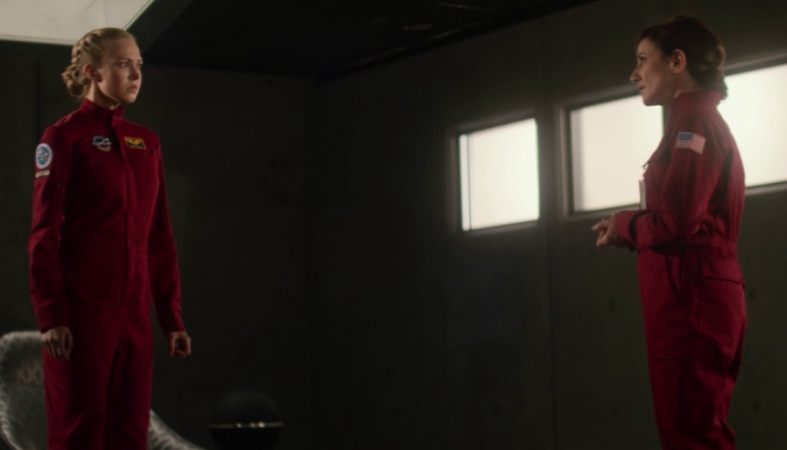
On this side of the story we also got an amateur Freudian analysis of Picard himself and his mental health. As I said, there was the kernel of an interesting idea in looking at Picard and how he may have carried some hidden trauma for a long time – but it didn’t really succeed on screen. A story like this needs to explain in some fundamental way an aspect of a character or their personality… and I just didn’t get that at all. We certainly know more about Jean-Luc Picard, in a strictly factual sense, than we did before the story began, but none of what we learned informs us about him in any meaningful way. There was no “aha!” moment, where some aspect of Picard’s personality, behaviour, or characterisation suddenly felt better-understood.
Picard had romantic entanglements during The Next Generation era, and references were made to past romantic liaisons in several episodes, too. The fact that Picard had never settled into a long-term relationship wasn’t something that I ever felt was crying out to be addressed or explained, so this entire story was built on very weak foundations.
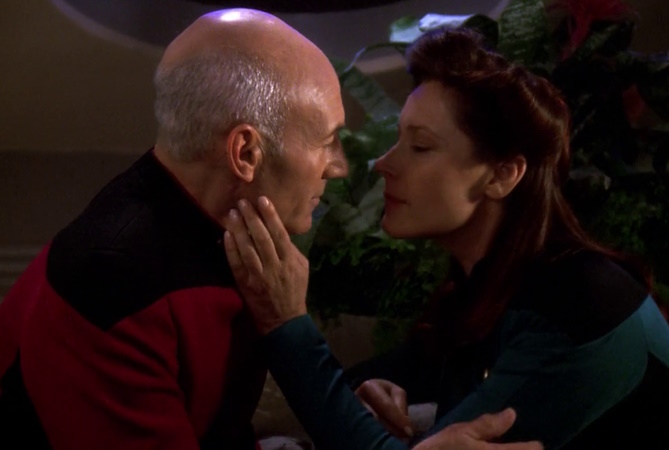
Picard’s close relationship with Dr Crusher in The Next Generation also stands in contrast to this. Yes, there was something stopping Picard and Crusher from “crossing that line,” but it was always suggested that what stopped them was Picard’s friendship with Jack Crusher. And of course, in at least one future timeline, he and Dr Crusher actually did take their relationship further. His relationship with Nella Daren, in the episode Lessons, likewise wasn’t hampered by some kind of innate fear of relationships, but rather that he struggled with the idea of being involved with someone under his command, for whose life he was responsible, and whom he might have to place in danger.
Then there’s the fact that, to be blunt, not everyone wants a relationship… and that’s totally okay! Plenty of folks are asexual and/or aromantic, neither seeking nor desiring a relationship beyond friendship. I’m not saying that Picard was ever written that way, and the relationships and romantic entanglements he had across The Next Generation would seem to rule it out. But, speaking as someone who is asexual myself, this idea that “everyone” should want to have a relationship, and that anyone who doesn’t want to be in a relationship must offer some kind of justification – such as childhood trauma – to explain or justify themselves is an outdated and regressive concept.
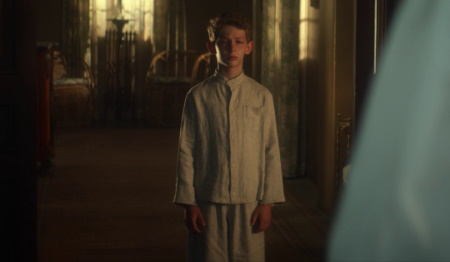
Season 2 told a story that put this aspect of Picard’s character at its core, but it was such a weak premise that it was ultimately unsatisfying. Add into the mix the fact that practically every theme of mental health that the season attempted to discuss failed for one reason or another – Raffi’s came the closest to success before being horribly undermined right at the end – and the entire thing feels like one massive misfire.
To be blunt, there are far better mental health stories out there. The themes that Picard Season 2 included touched on grief, childhood trauma, self- confidence, anxiety, one’s sense of identity, and even apathy and a lack of faith in humanity. But the story did justice to none of these, and fell back on overused and outdated tropes on too many occasions. It’s possible to include themes of mental health in ways that are relevant to a story like this, but the way in which they came across in Picard was poor across the board.
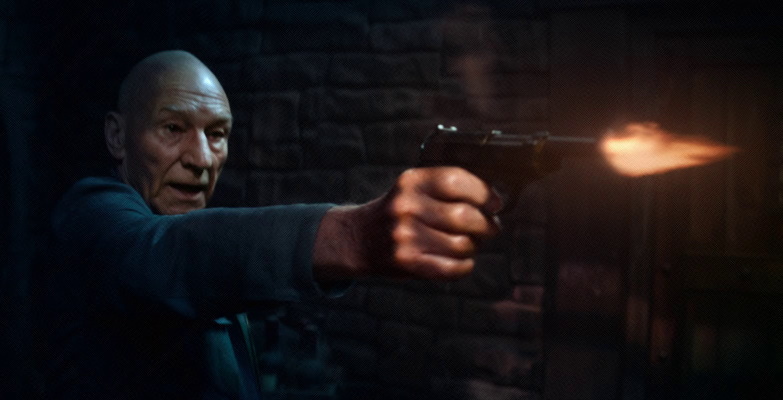
In terms of the other main characters, I think we have to view most of their arcs in Season 2 through the lens of their departures from the show. This news, which was hinted at midway through the season when we learned that the main cast of The Next Generation would be coming back, was finally confirmed shortly after the season finale, and it’s something I was very disappointed to learn. Of the new characters introduced in Season 1, only Raffi will be coming back in Season 3, so we need to consider this fact when we assess the rest of their arcs.
The only character who got a conclusive goodbye was Rios. And regrettably, Rios’ story was the worst and most confused in the whole season. There were clearly two very different, contradictory notions being used here: the first was that it had been determined that Rios was to be written out of the show ahead of Season 3, necessitating some kind of exit for the character, and the second was that at least some of the show’s writers and creatives wanted to use his story (and the fact that he’s Hispanic) to shine a light on the problems and abuses within America’s immigration system.
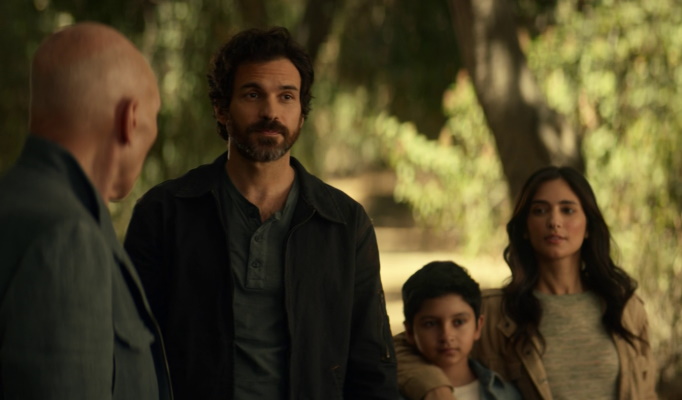
Because of the way in which Rios was written out of Star Trek: Picard, these two stories grated against one another for the entire season, and conflicted at a fundamental level. It’s impossible to watch Rios’ arc across the season and not be left with the distinct impression that two very different groups of writers with irreconcilable ideas for where to take the character simply could not agree on what he should do – leading him to both love and hate his time in the 21st Century.
Rios’ story undermined itself as the season wore on. What could have been a powerful message about the way the United States treats immigrants and refugees was completely lost, essentially overwritten by an abrupt turnaround in Rios’ characterisation as the need to jettison his character from the series became apparent.

And all of this came against the backdrop of Rios having completely regressed in his characterisation. I wrote in my review of the season premiere that a spin-off set aboard the Stargazer with Rios in the captain’s chair felt like a legitimate possibility… but having seen how he’d recovered, rejoined Starfleet, and was living his best life, Picard Season 2 dragged Rios backwards to the person he was at the beginning of Season 1: the roguish, “Star Trek does Han Solo but worse” type.
As captain of the Stargazer, the people under his command should have been Rios’ priority… but he didn’t once mention his ship or crew after the first episode of the season. After leaving them on the brink of assimilation and death, Rios seemed to forget that his crew even existed, and to me that’s an unforgivable storytelling mistake. Again, this is a consequence of Rios being written out of the series; it would have felt odd if his decision to remain in the 21st Century and not get home to his crew had come after he’d continually expressed his dedication to them. But all that does is reaffirm to me that this side of Rios’ story was completely wrong. There were ways to get him out of the show, if that’s what was needed, without dragging him through this utterly regressive arc.

Sticking with character failures, we have Elnor. As disappointed as I was to see Elnor killed off, as the season wore on, this character death began to feel right – or at least like a bold move that had positive repercussions for at least one other character on the show. This culminated in a powerful and deeply emotional sequence in the penultimate episode of the season in which Raffi’s season-long arc of coming to terms with loss and grief came to a head.
But for some inexplicable reason, Elnor didn’t stay dead. His death defined Raffi’s arc, and by extension Seven of Nine’s, too, but it was completely and utterly undermined by the decision to resurrect him with a few minutes to spare in the finale. Elnor got two very short scenes – clips, basically – after his resurrection, one in which he looked confused on a viewscreen and another at Guinan’s bar, where his disgust at a drink became the butt of a joke.
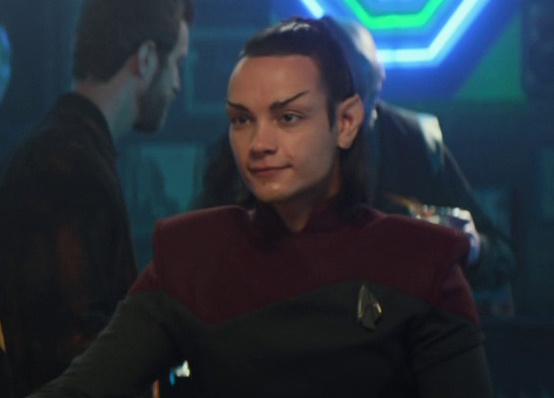
Given that actor Evan Evagora has confirmed that he won’t be reprising his role in Season 3, this resurrection is completely indefensible. It renders that deeply emotional sequence in the preceding episode impotent and meaningless, and ruins not only Elnor’s story, but Raffi’s too. Why bother spending eight episodes with Raffi going through the stages of grief only to rip it away for the sake of a gag that’s been done before countless times?
I like Elnor, and he was one of the new characters that I felt had a lot of potential when his inclusion in the series was first announced. But having decided to write him out of the show ahead of Season 3, the best option here was to leave him dead. His death, while not exactly fun, was something meaningful. It mattered, and while we can and should criticise the show’s writers for failing to really show the impact his loss had on Picard and the rest of the crew, it was at least the driving force for Raffi’s entire storyline. To undo that for no reason only to see Elnor disappear again at the beginning of Season 3? I just can’t get over how stupid a decision this was.
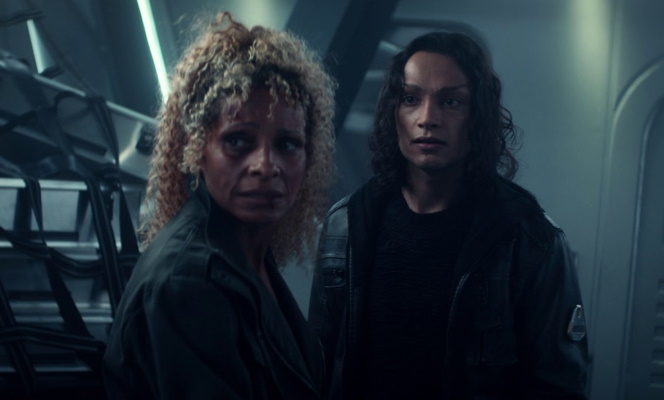
Another part of Raffi and Seven’s story bugged me in Season 2, and it wasn’t because of something the show did include. Rather, it was what felt like a glaringly obvious omission! In Season 1, we saw Seven of Nine having to cope with the loss of Icheb, someone she had come to view as a surrogate son. Icheb’s death had a massive impact on her life, leaving her with feelings of guilt in addition to the grief and loss.
In Season 2, we see a very similar situation play out with Raffi. She’d taken Elnor under her wing as he enrolled in Starfleet Academy, perhaps viewing him as a surrogate son as well. But neither Seven nor Raffi acknowledged this as their story unfolded. You’d have thought that Seven might have been able to draw on her own experience of dealing with Icheb’s death to empathise with Raffi or to at least have told her that she was in a better position than most to understand what that kind of loss feels like. It’s mind-boggling to me that the show’s writers could put these two women into such similar situations just one season apart, pair them up for almost the entirety of the story – and as a romantic couple, no less – but completely ignore this blindingly obvious and potentially incredibly useful point of comparison.
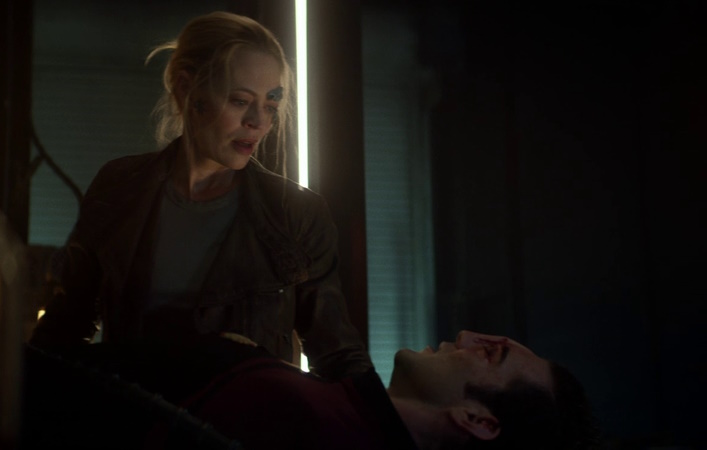
Imagine a scene or two like this: Seven tells Raffi that she understands what she’s going through because she had lost Icheb in comparable circumstances. Raffi lashes out, saying words to the effect of “no one could understand” and that Elnor’s death was Picard’s fault where Seven was responsible for Icheb’s death. This argument shakes up their relationship, leaving them both feeling hurt and angry. An episode or two later, Raffi apologises for what she said, and after a conversation, they share their memories of Icheb and Elnor, leading to their relationship growing and strengthening under the most awful of conditions.
How many minutes or lines of dialogue would need to be dedicated to something like that? In the context of a ten-episode season, hardly any time at all. And in the context of the plodding, muddled Picard Season 2… it would have been a great improvement.

So we come, inevitably, to Q and his plan to help Picard. In principle, I like the idea of Q wanting to help, and I like the idea of Q using the last of his “life force” in an act of kindness. But even by the standards of other Q stories in Star Trek, his plan this time was incredibly convoluted and hard to follow. Such a plan was already on pretty thin ice, but because of the way the season was structured, there wasn’t sufficient time dedicated to its explanation – and no explanation was even given for why Q might have been coming to the end of his life in the first place.
Even in episodes with complex and heavy themes, Q’s plots and schemes almost always served a purpose, and there was a clear line from action to explanation. In Picard Season 2… well, let’s try to explain it in words.

Q wanted to help Picard embrace the person he is, overcome his childhood trauma, and learn to fall in love. Aww. And he decided that the best way to accomplish this objective was by travelling back in time to the 21st Century, giving an ancestor of Data’s creator technology that could cure genetic diseases and mitigate climate change, and prevent a spaceflight involving one of Picard’s ancestors. This in turn led to the creation of a totally different timeline in the Star Trek universe, one in which humanity developed into a xenophobic, fascist state called the Confederation of Earth. Q then transported Picard – and several of his friends – into this alternate timeline shortly before their starship was set to self-destruct. Q knew that Picard would then have to travel back to the 21st Century to stop him, leading to his ship crash-landing at his family home in France, forcing him to re-live and confront those traumatic memories, finally overcoming them and learning how to fall in love with Laris, his Romulan friend. Who won’t be returning in Season 3 anyway.
Did I miss a step?

There’s nothing wrong, in theory, with a plan that’s complex or that requires multiple steps to get from beginning to end. And as a super-being with knowledge and foresight far beyond a human’s, we can give Q a bit of a pass in that regard if we’re feeling generous. But even then, Q’s plan was difficult to follow and feels more convoluted than complex. As the story meandered along, it wasn’t always clear what was Q’s fault and what wasn’t, and which characters were involved and why.
The biggest example of this is the team-up between Q’s 21st Century ally Adam Soong and the partially-assimilated Dr Jurati. These two characters had entirely opposite objectives: the Borg Queen wanted to prevent the Confederation from destroying the Borg in the 25th Century, and Soong wanted to make sure that the Confederation was established so he’d go down in history. Their aims may have aligned for a moment insofar as they both wanted to stop Picard… but there was no reason for them to remain allied, and after Adam Soong had served his purpose and given the Borg Queen an army of pseudo-drones, it made no sense for them to continue to work together.

Sticking with Adam Soong, his character arc is kind of Season 2 in microcosm: it started great, but quickly fell apart. In his first appearance, there was genuine nuance in Soong’s characterisation. His apparent desire to help his daughter could have led to a sympathetic, complex presentation of a man who was so desperate that he was willing to do anything – even something nefarious – to help his family. But that feeling lasted barely a single episode, and Soong quickly fell into the trap of being a bland, one-dimensional villain.
Some stories work well with that kind of out-and-out “baddie” who needs to be stopped at all costs – but this one didn’t. When there was the opportunity to present Adam Soong more sympathetically or at least understandably, perhaps as someone who didn’t realise that what he was doing would have ramifications beyond his own lifetime, it’s really quite disappointing that the writers would so quickly drag him back to that same overplayed trope. Brent Spiner can play villains incredibly well, and there’s nothing to fault in the performance. But the characterisation of Adam Soong left a lot to be desired.

To return to Q’s plan, it was something that needed a lot more screen time. By the time we arrived at the finale, there was – for the second season in a row – too much to do and not enough time left to do it. As a result, Q’s explanation for his actions, his death, and crucially, Picard’s reaction to all of it, was blitzed through in a matter of moments. Realistically, given the convoluted nature of Q’s scheme and the fact that he was dying, we needed more or less a full episode on just this topic – or Q needed to have a simpler, more easily-understood objective.
The way in which Picard responded to Q really bugged me. Not only did he accept, in an instant, that all of this death, destruction, assimilation, and drama was all being done for his sake, but he didn’t ask Q to undo any of it. When Q announced that he was dying, Picard didn’t even ask the most basic of questions: why?
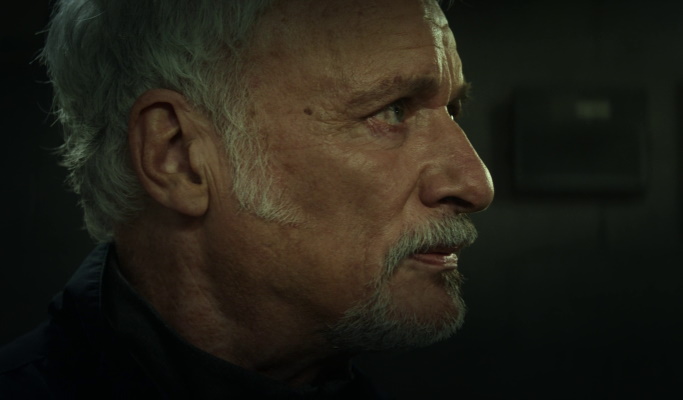
In Star Trek, the Q as a race are essentially god-like: functionally immortal and with powers and abilities far beyond any humanoid race or any other race ever encountered by the Federation. Figuring out what could cause a seemingly immortal being like Q to die seems like something Picard should have at least been curious about. And on a personal level as well, Picard seemed finally ready to accept the friendship that Q was offering – so wouldn’t he have wanted to find out why his friend was dying?
The most-read piece that I published here on the website in 2022 was all about Q’s death, and I put together a handful of different theories about what could have caused it. The fact that so many Trekkies and viewers of Picard needed to seek out something like that speaks volumes: this should have been explained in the show itself, but it wasn’t.
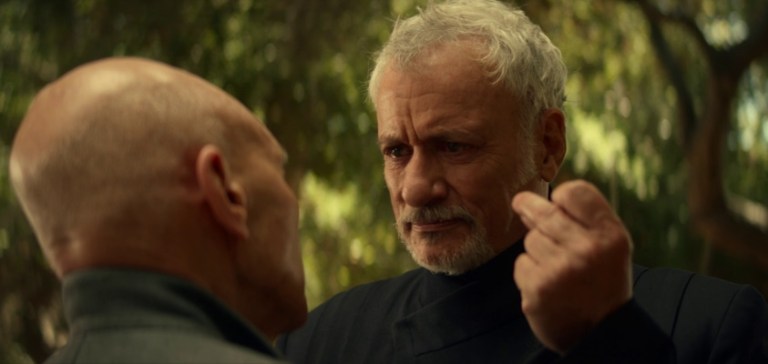
Unlike some other storylines that seemed to run out of road or just hit the wall, this one was deliberately left unexplained. No explanation was written nor even conceived for Q’s death – and yet this point is a massive one in the overall continuity of Star Trek. As fans, and even for casual viewers, getting some kind of explanation for this, even if it would ultimately be little more than technobabble, would have been worthwhile, and would have made this side of the story feel closer to complete.
Although Q’s motivation for this entire convoluted plot was to help Picard, it was also his impending death that spurred him on, as he confessed to Guinan. Such an important part of what drove him for basically the entire story needed more explanation than “just because,” but the writers didn’t have one.

The decision to spend eight-and-a-half episodes out of a truncated ten-episode season in the 21st Century was a mistake. It was an experiment, an idea that someone at Paramount had – perhaps to save money – that had never been tried before in the franchise to such an extent… but there’s clearly a reason for that. What makes Star Trek, well, “Star Trek” is its optimistic look at the future. There’s always been scope to step back in time to see parts of how that future came about, or to “save the future” from some cataclysm or villain, but stories that involve travelling to the modern day have to serve a purpose. When the story was so contradictory, muddled, and just plain difficult, any sense of purpose that Picard Season 2 had got lost in the already underwhelming setting.
There seemed to be a desire, or perhaps a studio-mandated requirement, to end each of the ten episodes on some kind of cliffhanger – but this didn’t always work well, and caused issues of its own. Breaking up the story in this artificial manner was intended to keep fans hanging on, waiting for next week’s outing to see the resolution to the cliffhanger. But when the whole season operated like this, it soon wore out. Worse, it meant that several storylines that should have been one-and-done affairs ended up stretched out over more than one episode, adding to the pacing and timing problems that eventually contributed to the rushed finale.

The end of the episode Penance was an unnecessary cliffhanger, one that the next episode resolved within literally a couple of minutes. But those minutes took time away from travelling to the 21st Century, and this chain of cliffhanger upon cliffhanger as the season rolled on ended up wasting time. One or two of these instances could be forgiven, perhaps – and in a better story or one without such pacing issues, they surely would have been. But in Picard Season 2, circumstances conspired to make these cliffhanger endings more than just annoyances – they actively contributed to storylines running out of road.
There were key storylines and sections of the plot that relied on some pretty awkward contrivances, and as I wrote at the time, when one small push is enough to send the whole thing crashing down, that makes for a very unsatisfying feeling. To give perhaps the most egregious example: 90% of the plot of Watcher could have been skipped if the Borg Queen simply shared what she knew about the Watcher and where to find her.

At that point in the story, the objectives of the Borg Queen and Picard’s crew were in complete alignment: both needed to prevent the creation of the Confederation timeline by stopping Q. Yet for seemingly no reason whatsoever, the Borg Queen suddenly became evasive and uncooperative after arriving in the 21st Century, leading to one of the season’s slowest, least-interesting episodes as Picard had to slowly track down the Watcher. If this story beat accomplished something, and if the rest of the season had been stronger and better-paced, it would still be an annoyance. But considering other story failures and the rushed finale in particular, the fact that basically this entire episode ended up being little more than padding is utterly ridiculous.
Likewise, Seven of Nine and Raffi spent a significant amount of time on an overblown side-quest as they tried to track down Rios following his arrest and incarceration. That storyline got so little payoff before Rios had to make his abrupt switch that spending more than a few minutes on it – let alone dragging it out across several episodes – felt incredibly wasteful, and even more so in retrospect. Time wasted on these insignificant and overwritten narrative threads could have been reallocated to get Picard and the crew back to the 25th Century sooner, allowing for more time with the Borg and the mysterious anomaly.

Kore Soong was a non-entity in the season, a character who seems to have been created basically to throw a bone to actress Isa Briones when Soji had been cut – or a role for her couldn’t be found. Although Kore seemed to serve a purpose at first – to give motivation to Adam Soong – this quickly fell away when, as mentioned, Adam’s characterisation was switched to be a typical “mad scientist” trope. We’ve seen that kind of character so many times before in Star Trek that it fell flat.
But Kore’s story also felt incredibly repetitive, especially in the episode Two of One midway through the season. In Season 1, a huge part of Soji’s arc across multiple episodes was uncovering and then coming to terms with her synthetic nature and the fact that parts of her life and memories were a lie. Kore goes through a nigh-on identical storyline, learning that she’s a clone, a genetic construct, and the fact that the same actress played both parts just one season apart really hammered home its recycled nature.

All of the main characters (and most of the secondary characters too, come to that) were split up, disconnected from one another for most of the season. After getting together in the premiere and briefly reuniting in the Confederation timeline, the main characters were basically all in their own little boxes the rest of the time. There didn’t seem to be much communication between these characters or pairs of characters, with seemingly massive decisions being taken by one or two that affected the entire group – and this would happen with seemingly no consultation whatsoever.
Although there are dozens of examples of this, perhaps the biggest one came in the penultimate episode of the season: Seven of Nine and Raffi handed over control of La Sirena to the Dr Jurati-Borg Queen hybrid. Without so much as a word to Picard, they agreed to give her the ship – despite the fact that defending the ship was basically the whole team’s objective prior to that moment.

These disconnected character groups seemed to all be doing their own thing, with Rios transporting Teresa and Ricardo to La Sirena seemingly without telling anyone, Raffi and Seven of Nine taking off to chase after Dr Jurati without telling Rios and Picard, and earlier in the season, Dr Jurati being left to fend for herself with the Borg Queen.
Splitting up the characters meant that we hardly got any on-screen interactions between some of them, and that had an impact at points, too. For example, I never really felt that Rios and Picard were especially close. They were “work friends,” but not real friends, if that makes sense. So when Rios said that he’d come to view Picard as a kind of father figure, that bolt from the blue felt unearned. “Show, don’t tell” is a piece of advice often given to new writers or students taking their first creative writing class… and that seems to apply here.

So let’s start to wrap things up.
In Season 1, an enjoyable enough story was ruined by a poor ending. In Season 2, things started incredibly well before taking a nose-dive, and by the halfway point I found myself watching Picard more out of a sense of obligation than for any enjoyment. There were still highlights, moments within practically every episode that worked well, achieved an objective, or got me to crack a smile for a minute or two. But taken as a whole, for all sorts of reasons the season fell apart.
Whether we’re looking at the surface narrative or deeper themes, and for both main and secondary characters, Picard Season 2 had some interesting ideas – but couldn’t make them work. The season was muddled, confused, and seemed to work against itself. Its deliberately slow, almost glacial pace led to the mistakes of Season 1 being repeated, with a rushed conclusion to a story that, to put it bluntly, didn’t have enough actual narrative content to warrant something like that happening.
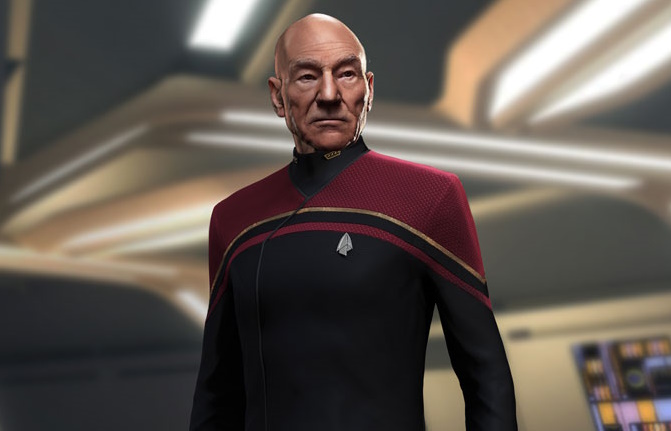
There were some outdated depictions of mental health, which was disappointing enough in itself, but what bugged me even more was that a character I respect and admire in Jean-Luc Picard came to accept the mistreatment of his mother’s condition at the hands of his father. Only Raffi’s story of coming to terms with grief was handled delicately and seemed to be working – until the last-second resurrection of Elnor massively and catastrophically undermined practically all of it.
Because it had been determined that, for production-side reasons, almost all of the main cast were to be dumped, several characters ended up going down disappointing paths. Rios’ presentation was the worst in the season, taking him from such a strong starting point that I genuinely felt he could carry his own spin-off through a total regression to a disappointing end. But he wasn’t the only character to suffer, and there were issues with practically all of the main and secondary characters that either took them to the wrong place or didn’t give them enough to do.

Picard Season 2 teased us with a tantalising mystery: the return of the Borg and a mysterious anomaly. This presentation of the Borg was genuinely terrifying, and seemed to update one of the Star Trek franchise’s most iconic villains, readying them for perhaps one final encounter. But this tease went nowhere, with the Borg Queen ultimately revealed to be an assimilated Dr Jurati, and the mysterious anomaly got so little screen time that it ultimately didn’t matter to a story that firmly fixed its gaze elsewhere – on elements and characters that were far and away less interesting and engaging.
Star Trek is a franchise that has never been afraid to experiment, and this season was a bold experiment in more ways than one. That’s something praiseworthy, and it’s great that Paramount is accommodating to the idea of telling new, different, and experimental stories in the Star Trek universe. But Season 2 is ultimately an experiment that didn’t work, and I sincerely hope that lessons will be learned so that these mistakes can be avoided in future.

Star Trek: Picard is going to end after its third season. With that in mind, the fact that Season 1 is a difficult watch because of how poorly it ended and the fact that Season 2 was a meandering, muddled mess… it leaves me feeling truly dejected. Seeing Star Trek return to the late 24th Century and pick up the stories of characters from that era was something I’d wanted to see for close to twenty years – but Picard hasn’t been able to do justice to that wonderful concept. A season that spent most of its runtime either in an alternate timeline or the 21st Century offered scarcely any opportunities to tell the kinds of stories that I want and expect from Star Trek… and perhaps that’s why I disliked it so much. Picard Season 2 just didn’t feel like Star Trek for the most part.
Having re-watched the season partly for the purpose of writing this and partly because Season 3 is right around the corner, I have no plans to ever go back to it. There are practically no other stories in all of Star Trek that elicit that kind of a reaction, and even episodes and films that I don’t enjoy every aspect of I still find worthy of taking a look at from time to time. Unless something major comes along in Season 3 that could retrospectively change how Season 2 is perceived, this could well be the last time I’ll ever watch it. I didn’t want or expect to be in that position, especially with only three seasons of Picard being offered. To have to write off one-third of the show as essentially being unwatchable garbage is really disappointing to an old Trekkie who wanted desperately to have a good time with it.
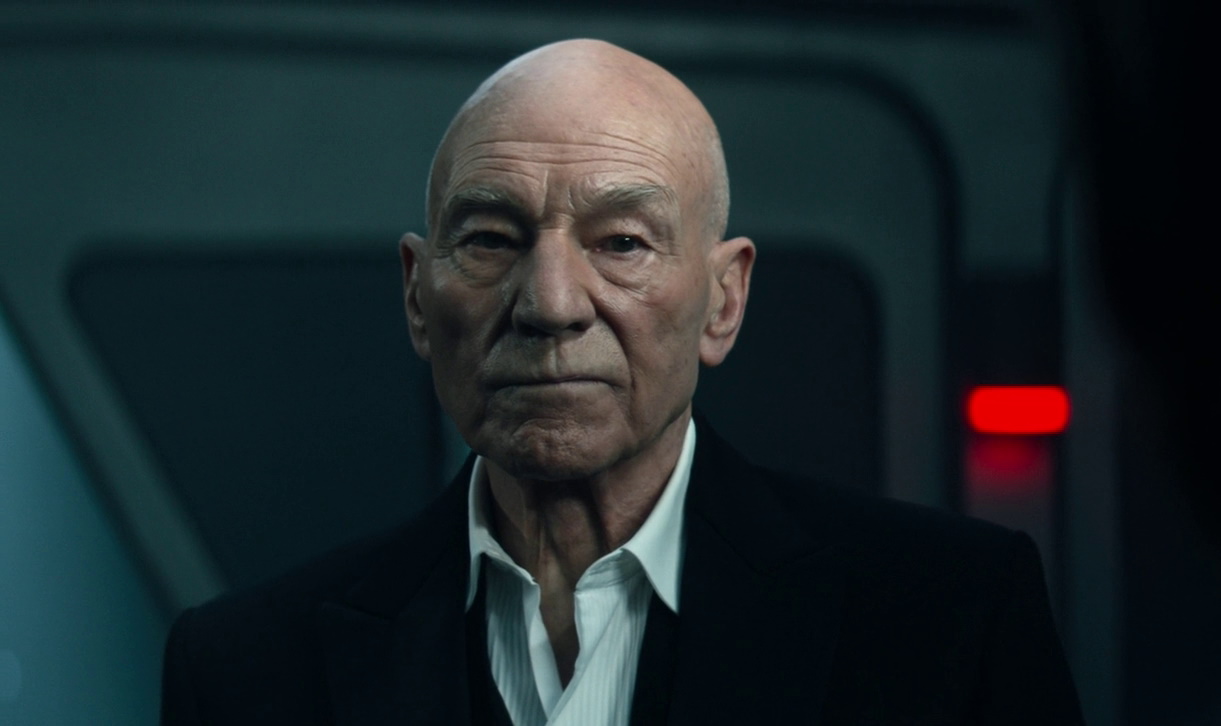
Star Trek’s future feels less certain than ever right now, with Paramount+ seriously struggling in a very competitive market and under difficult economic conditions. While there are two more animated seasons to come that will look at the late 24th Century, when Picard’s third season comes to an end in just a couple of months’ time, there won’t be any more live-action stories in this time period. Picard Season 2 was ultimately a waste – a navel-gazing story that spent far too much time away from practically everything that makes Star Trek what it is. There were interesting concepts, but they got buried under a slow, confused, contradictory narrative that failed to make them work. And the unhelpful mental health tropes that dominated key storylines just adds to the disappointment.
Despite a poor ending to Season 1, I still felt hopeful that Season 2 could pick up the pieces and tell an interesting and engaging story. For the most part, it was neither of those things, and it wasn’t particularly fun or entertaining, either. The aspects of the story that could have provided points of interest or entertainment value were sidelined or ignored, and the season as a whole feels bitterly disappointing.

Can Season 3 save the day? Can a creditable ending be salvaged from amidst the wreckage? On the one hand, it feels like a tall order – and even if Season 3 is fantastic, the disappointment of Season 2 won’t be entirely expunged. But on the other hand, Season 3 actually has a pretty low bar to clear. Even if it’s not that great, it will still be hard for it to be as disappointing as Season 2.
And perhaps that’s the best thing we can say about Picard Season 2. For future Star Trek projects, it can teach lessons by serving as the clearest example of what not to do, while also providing an easy win. After all, it will be difficult indeed for any future Star Trek series or film to fail as comprehensively and catastrophically as Picard Season 2.
Star Trek: Picard Season 3 will premiere on Paramount+ in the United States on the 16th of February 2023, and on Amazon Prime Video in the United Kingdom and around the world on the 17th of February 2023. Seasons 1 and 2 are already available to stream or buy on DVD/Blu-ray. The Star Trek franchise – including Picard and all other properties discussed above – is the copyright of Paramount Global. This article contains the thoughts and opinions of one person only and is not intended to cause any offence.


